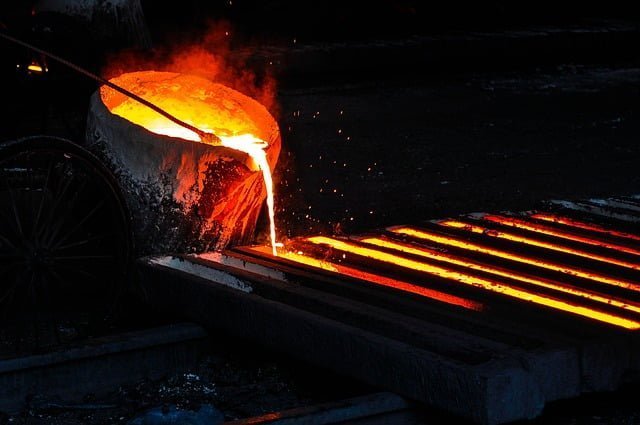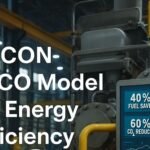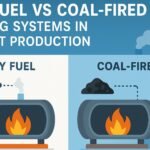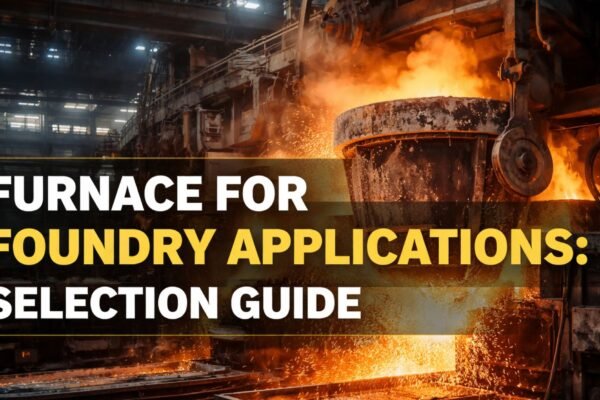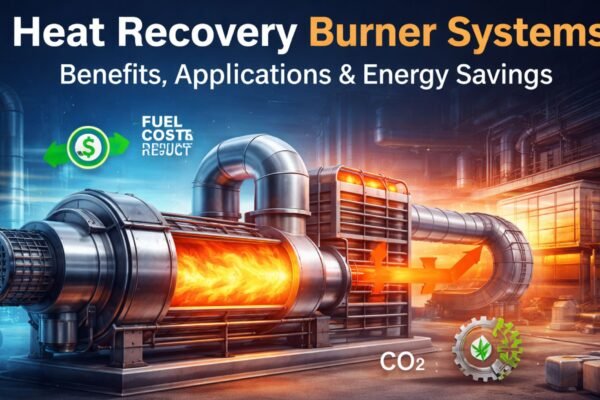Introduction
Industrial heating processes such as kilns and boilers are at the heart of manufacturing sectors like cement, steel, glass, ceramics, and power generation. However, these processes are also major contributors to greenhouse gas emissions, particularly CO₂ and NOx. As industries face growing environmental regulations, rising fuel costs, and sustainability pressures, the search for cleaner combustion technologies has intensified.
One of the most promising advancements in this space is Low Carbon Oxy-Fuel Combustion. By replacing conventional air-based combustion with oxygen-enriched systems, industries can achieve higher thermal efficiency, reduce emissions, and improve overall process performance. This technology is transforming industrial kiln combustion systems and boiler operations worldwide.
What is Low Carbon Oxy-Fuel Combustion?
Low Carbon Oxy-Fuel Combustion involves burning fuel using nearly pure oxygen instead of ambient air. Traditional combustion relies on air, which is about 78% nitrogen. This nitrogen absorbs heat and leaves through the flue gas, reducing efficiency and generating thermal NOx emissions.
In oxy-fuel systems:
- Oxygen is supplied at high purity (90–99%).
- Nitrogen content is drastically reduced.
- Flue gas volume decreases significantly.
- CO₂ concentration in exhaust increases, making carbon capture easier.
By combining oxy-fuel combustion with modern heat recovery and burner design, manufacturers can meet both production and environmental goals.
Why Industries are Adopting Low Carbon Oxy-Fuel Systems
The shift toward Low Carbon Oxy-Fuel Combustion is driven by several operational and environmental benefits:
🔹 Reduced Carbon Emissions
Less nitrogen means higher flame temperatures at lower fuel usage, which results in lower CO₂ emissions per unit of output.
🔹 Lower NOx Formation
With nitrogen minimized, thermal NOx generation is drastically reduced, helping industries meet stringent emission regulations.
🔹 Improved Heat Transfer
Higher flame temperatures and radiant heat improve efficiency, especially in industrial kiln combustion systems.
🔹 Fuel Savings
Reduced flue gas losses lead to a 10–25% improvement in boiler combustion efficiency, depending on the application.
🔹 Ease of Carbon Capture
High CO₂ concentration in flue gas simplifies the integration of carbon capture and storage (CCS) technologies.
Application in Industrial Kiln Combustion Systems
Kilns—especially in cement, lime, and ceramics—require precise temperature control for product quality. Traditional air-fuel systems lose significant energy to nitrogen heating and excess flue gas.
By integrating oxy-fuel burners for kilns and boilers, the process achieves:
- Higher flame intensity for rapid heating.
- Lower fuel consumption due to reduced heat loss.
- Better product quality from uniform heat distribution.
- Emission compliance without expensive end-of-pipe treatments.
Encon Thermal Engineers has successfully implemented oxy-fuel solutions in rotary kilns, tunnel kilns, and vertical shaft kilns, enabling industries to upgrade without full equipment replacement.
Enhancing Boiler Combustion Efficiency
Boilers in power plants, refineries, and manufacturing consume massive amounts of fuel. Small efficiency improvements translate into huge cost savings and emission reductions.
Low Carbon Oxy-Fuel Combustion in boilers offers:
- 10–15% higher boiler combustion efficiency.
- Lower excess air requirement, minimizing stack losses.
- Reduced size of flue gas treatment systems due to smaller exhaust volume.
When combined with advanced control systems, oxy-fuel boilers can respond quickly to load changes while maintaining stable flame conditions.
Oxy-Fuel Burners for Kilns and Boilers – Key Features
Modern oxy-fuel burners for kilns and boilers are designed with precision mixing of oxygen and fuel to prevent hotspots and maintain flame stability. Key design elements include:
- Staged combustion for NOx suppression.
- Variable oxygen flow control for energy optimization.
- Integrated safety systems to manage oxygen handling risks.
- Retrofit compatibility with existing furnace and boiler designs.
Encon Thermal Engineers customizes burner designs to match specific kiln or boiler operating conditions, ensuring maximum ROI for clients.
Economic and Environmental Advantages
Switching to Low Carbon Oxy-Fuel Combustion is not just about compliance—it’s about long-term profitability and operational resilience.
- Fuel Cost Reduction: Savings of up to 20% in energy bills.
- Emission Credits: Potential eligibility for carbon credits and sustainability certifications.
- Maintenance Savings: Lower flue gas volumes reduce fouling and corrosion.
- Future-Ready Operations: Easier integration with renewable fuels like hydrogen.
Challenges and Considerations
While oxy-fuel systems offer clear advantages, successful implementation requires:
- Reliable Oxygen Supply: Onsite generation or bulk delivery must be ensured.
- Proper Burner Design: Avoiding hotspots that damage refractory linings.
- Operator Training: Handling high-purity oxygen safely.
- Initial Investment: Higher upfront costs, balanced by operational savings.
Encon Thermal Engineers addresses these challenges with turnkey solutions, from oxygen plant integration to post-installation support.
The Road Ahead for Low-Carbon Combustion
Global decarbonization goals are pushing industries to adopt advanced combustion technologies. The integration of Low Carbon Oxy-Fuel Combustion with digital monitoring, AI-driven combustion control, and hybrid renewable energy sources will further improve performance.
Future developments may include:
- Hydrogen-oxygen combustion for near-zero emissions.
- AI-based flame monitoring for predictive maintenance.
- Modular oxy-fuel retrofit kits for faster adoption.
Conclusion
Low Carbon Oxy-Fuel Combustion is no longer a niche technology—it’s a practical, scalable solution for industries aiming to cut emissions and costs. From industrial kiln combustion systems to high-capacity boilers, oxy-fuel technology delivers higher thermal efficiency, reduced pollutants, and a future-ready platform for cleaner manufacturing.
Ready to upgrade your kilns and boilers with Low Carbon Oxy-Fuel Combustion?
Partner with Encon Thermal Engineers and take a step towards higher efficiency, reduced emissions, and sustainable operations.
📞 Contact us today to discuss your project needs and explore customized oxy-fuel burner solutions.
